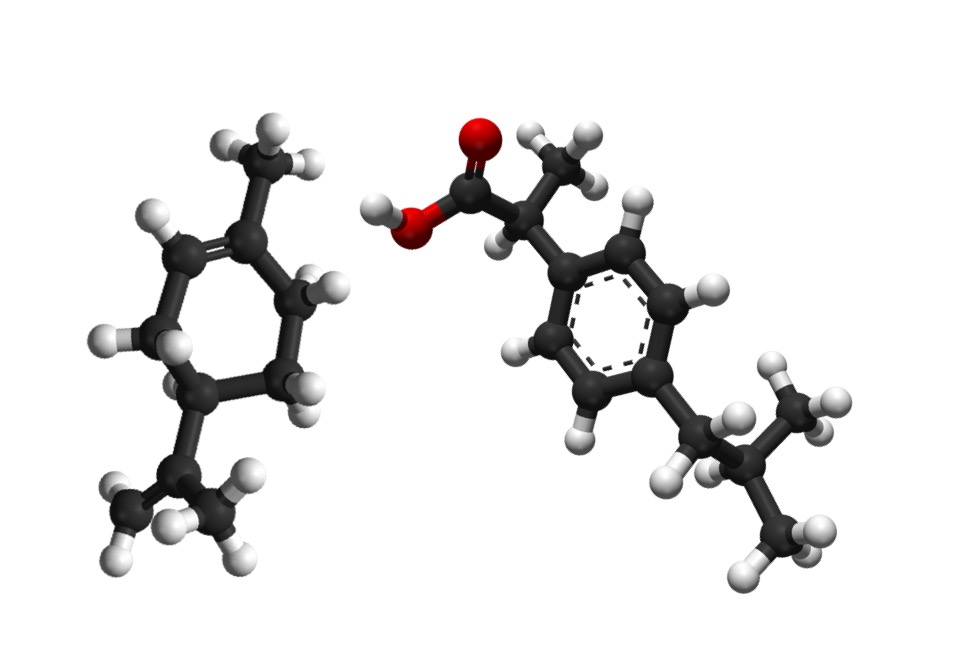This invention is a composition of limonene and ibuprofen, in the appropriate molar ratio to form a deep eutectic system. These systems have proven to behave as a single entity, distinct from that of the pure components that constitute the mixture. Limonene:ibuprofen eutectic systems present protective, anti-inflammatory and anti-cancer properties and have demonstrated to enhance its therapeutic action, when compared to the pure components. The invention herein proposed provides clues for future development of new pharmaceutical systems, based on eutectic compositions of terpenes and anti-inflammatory agents which may enhance the bioactivity and efficacy of the systems designed and can lead to significant breakthroughs in cancer therapy.
Carcinogenesis is a phenomenon not only restricted to the abnormal growth of cells but also includes angiogenesis and inflammation processes, which play an important role in tumor progression. The bioactivity of deep eutectic solvents (DES) is not yet well explored. Literature has already reported cytotoxicity of ammonium- and choline chloride-based DES for several cancer cell lines, but it is not clear if this is a selective toxicity towards cancer cell lines.
Limonene is a cyclic monoterpene studied at preclinical and clinical levels due to its chemopreventive and chemotherapeutic activities at several types of cancer, as lung, breast, gastric or prostate. Its high lipophilicity contributes to a favorable cellular absorption, specifically at intestinal level, leading to a good bioavailability in the systemic circulation. In colorectal cancer, limonene has been reported to induce apoptosis via mitochondrial pathway and affect PI3K/Akt signaling pathway (survival and apoptosis). However, the administration of limonene is limited by its toxicity and volatility.
On the other hand, regarding inflammation process, different molecules have been explored. For example, fatty acids terpenes and non-steroidal anti-inflammatory agents have already been reported, where (i) capric acid, is known to act against oxidative stress and pro-inflammatory cytokines, (ii) menthol is capable of reducing IL-1ß at chronic colonic inflammation, and (iii) ibuprofen is a commercialized anti-inflammatory compound also associated with tumor reduction.
